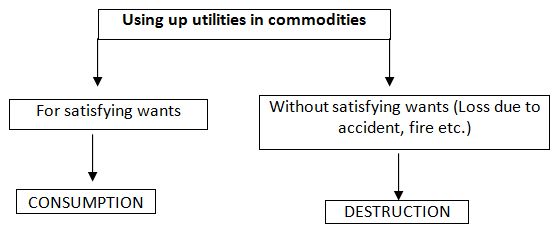Laws of Consumption
In economics, consumption refers to the using up of utility of a good for the satisfaction of human wants, For example when we eat an apple, we are using up the want satisfying capacity of the people. This is called consumption of apple. Similarly when we wear a pair of shoes, we are using up the utility-content of shoes. Thus the commodity may be destroyed by using it once as in case of apple or the process of consumption may continue for a long period of time as in case of shoes. This process of consumption may continue for long period of time as in case of shoes. This shows in case of perishable goods, with the destruction of utility, the good is also used up or literally consumed; it vanishes or disappears in the process of consumption. But in case of durable commodities like a car or a pair of shoes, the use of utility content of the good continues for a long period of time and the good depreciates slowly.
It must be remembered that using up utilities in commodities without satisfying human want is not consumption. It may be called destruction. For instance, loss due to fire or accident is the destruction of utility.
Importance of Consumption
- Consumption is the beginning and end of all economic activities. Production, exchange and distribution take place because of consumption and satisfaction of human wants is the end of all economic activities.
- The Quantity and quality of consumption determine the standard of living of the people in a society. Hence consumption acts as the measuring rod of human welfare.
- The quantity of consumption affects the health and efficiency of the labour force. This ultimately affects the productivity in economy.

